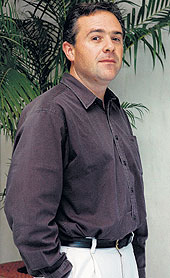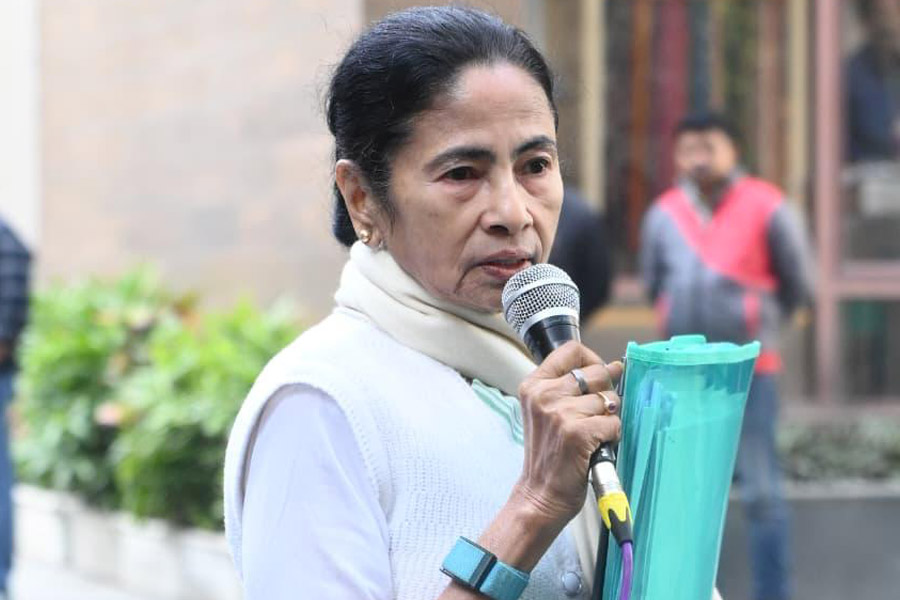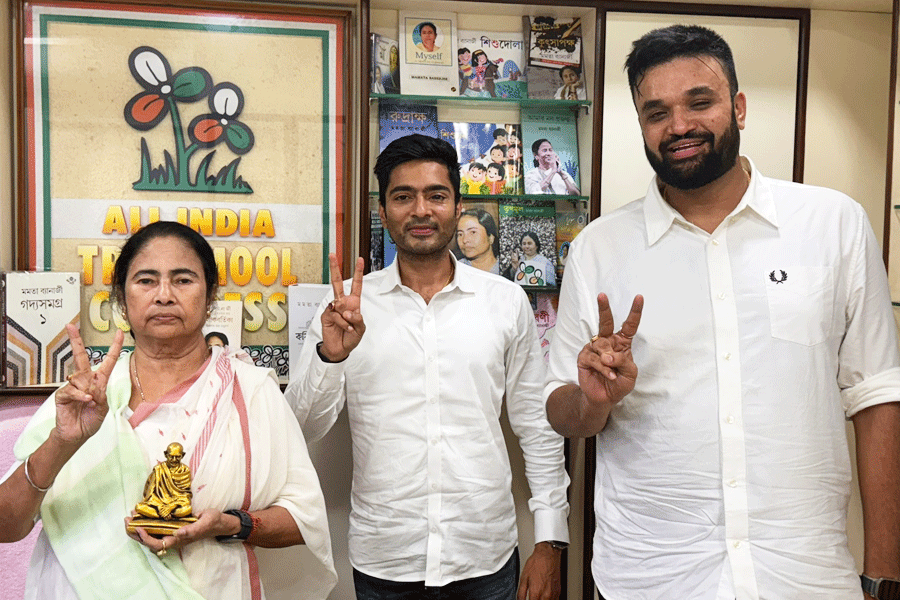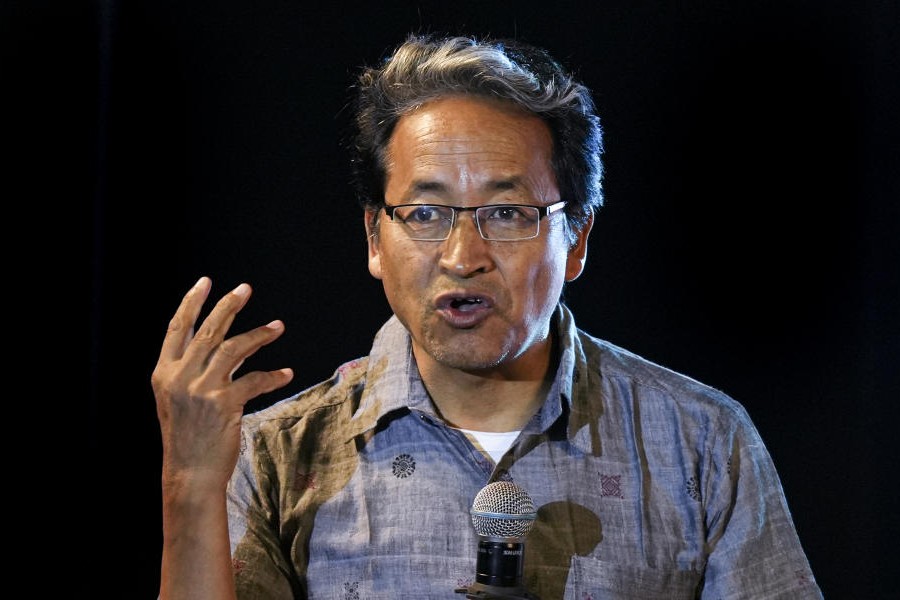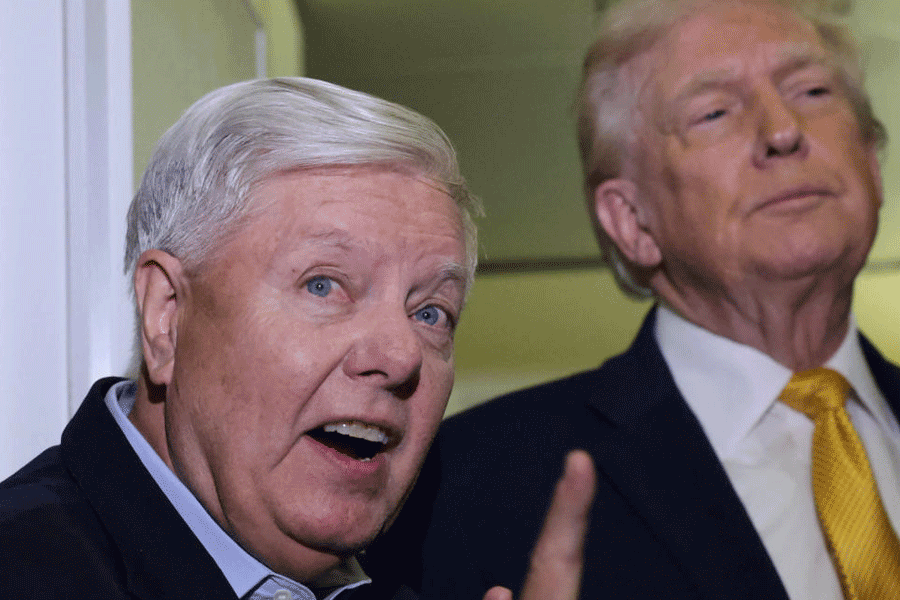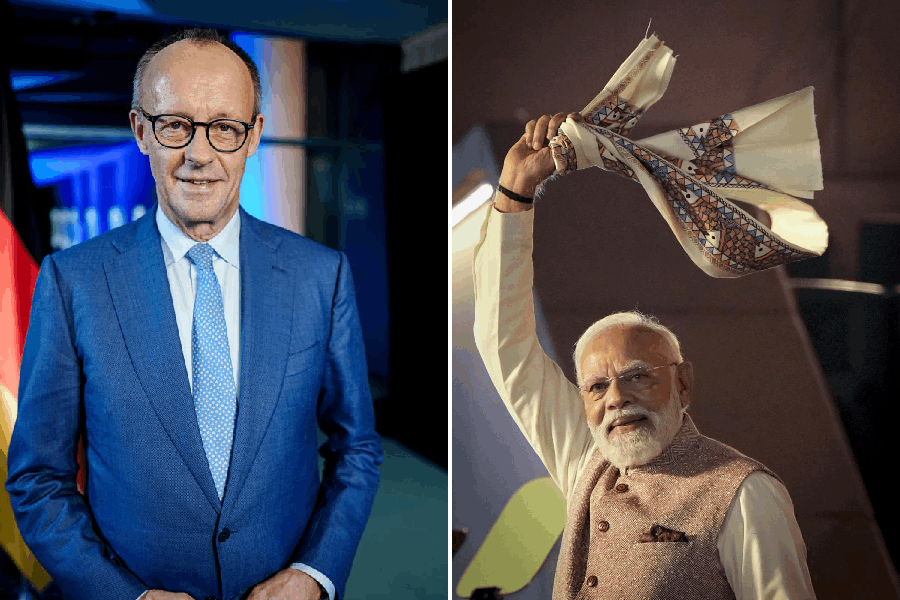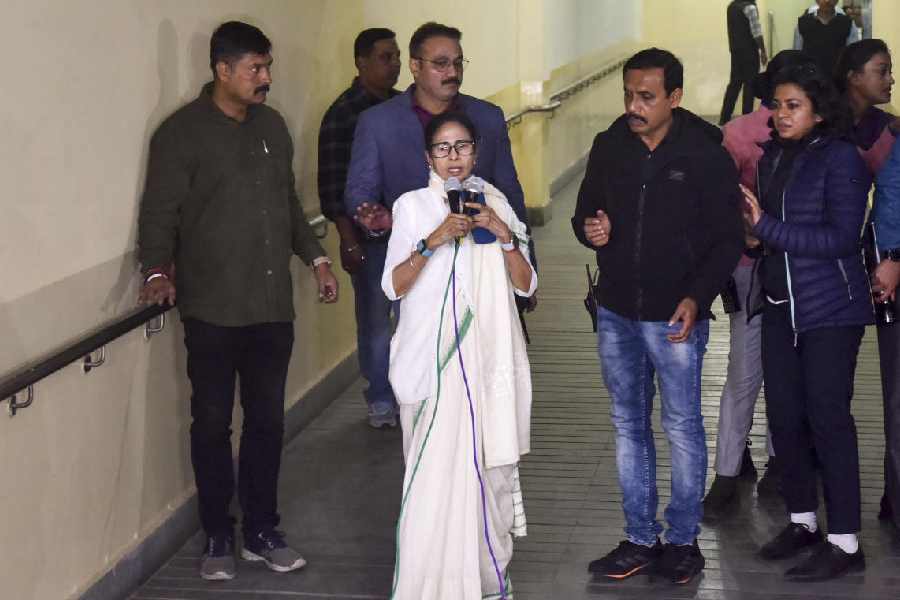 |
Edward Luce finds it a slightly surreal experience playing the pampered guest in Delhi’s Taj Hotel. Until very recently Delhi was his home and he lived in neighbouring Golf Links, practically a stone’s throw from the hotel. As the South Asia bureau chief of the Financial Times based in Delhi, he came to the Taj regularly — but only as an outsider.
Now, he’s moved on and is the FT’s high-profile bureau chief in Washington. But he’s back in India for a whirl of functions to launch his first book, In Spite of the Gods, The Strange Rise of Modern India.
“India is never dull, there’s never a grey interview nor is there a paucity of material to write,” he says. Luce describes In Spite of the Gods (Little, Brown) as a ‘wide-ranging generalist book written by a journalist’. It’s a serious effort to educate the reader — specially foreigners — on the complexities that drive this country.
The book focuses chiefly on politics and the economy. But in the process he also draws on his vast personal experiences in India to tell all about “a country undergoing a remarkable transformation that will increasingly affect the rest of the world”. The final picture he draws is a country undergoing rapid growth but which is also beset by deep contradictions.
In Spite of the Gods has been brewing in Luce’s mind since his third year in India. He put together a synopsis for a roughly 400-page volume and found himself a literary agent, Natasha Fairweather at A. P Watt in London. Though she’d never done a book on India, she grabbed the bait and Luce began putting together his research in earnest.
 |
The next stage was taking a nine-month sabbatical. He spent about six months criss-crossing India once again as a sort of refresher course. His travels began with a few days in drought-prone Devdoongri in Rajasthan with social activist Aruna Roy. Later he crossed to Aurangabad to meet the followers of Baba Saheb Ambedkar and assess the health of their movement. Finally, he flew to Mumbai to interact with the top guns of the corporate world. “I didn’t want the book to be warmed up journalism backed by my old notes. The information had to be fresh,” he says.
In the pages of In Spite of the Gods, Luce obsesses with Indian parameters of poverty, corruption and ailing infrastructure, yet he insists that he views the country with “guarded optimism”. He also writes frankly about the role of the state and the ills that permeate the system.
“I don’t think I have magnified problems out of proportion — these are major problem areas.” He believes that the reform of the Indian state is central to India’s future and this is his book’s prime focus. But he adds, “India is going in the right direction but perhaps not fast enough compared to China.”
Perhaps it’s not surprising, that he isn’t entirely convinced that India is on the verge of becoming a superpower. In the book’s concluding chapter, Hers to Lose, he writes: ‘In its present condition, there is a considerable question mark over India’s state.’ Luce explains: “I feel that by the mid-21st century, India could be one of the top two or three powers in the world — but on the other hand, it might not be. But then every prediction in history has been mocked by the successive generations.”
As he looks back, Luce says there were many high points during his stay in India. As a journalist there’s an Indian character trait that he simply loves. “Indians are delightfully indiscreet and talkative when it comes to foreign journalists,” he says.
So he had Arun Shourie, then minister for disinvestment, candidly telling him how corrupt his government was. Luce also has vivid recollections of the struggle to get an interview with Sonia Gandhi and when he did, it was unfortunately an off-the-record one. At another level, his meeting with the monosyllabic Atal Behari Vajpayee, the then prime minister, turned out to be almost fruitless from a journalistic point of view. “Vajpayee seemed increasingly senile and interviewing him was like trying to draw blood from stone.”
What are Luce’s qualifications for writing about India? Besides being a foreign correspondent here, his India connection dates back to 1987 when as an 18-year-old he came on a backpacking trip. That’s also when he read India: the Siege Within by M. J. Akbar and was instantly fascinated by the country. And as providence would have it, some years later when studying Politics, Philosophy and Economics at Oxford, he met Priya Basu, a student of Economics at Oxford, whom he married in 1994 — “right here in Delhi’s Aurangzeb Lane,” he says.
Being married to an Indian has also contributed to the candid opinions he voices in the book. He says, “I guess I can be ruder about India more easily.” Today his social life is dominated entirely by his Indian friends and he’s even picked up “thorra, thorra” Hindi. He says, “When I began the job in 2001 I had to hit the ground running, filing stories from my first day in India. But when I started writing the book, I felt the need to know more of the language.” He tried his hand at learning intensive Hindi from the Landour Language School in Landour just off Mussoorie, but soon gave up. But he picked up enough to get by.
Though today he forsees returning to India for a longer stay, Luce recalls that in the past Delhi’s ‘beltway’ atmosphere did get to him sometimes. “Delhi can sometimes seem unreal. It thrives on gossip, is personality obsessed and self-reverential,” he says.
But he has spent more time in India than anywhere else in recent years. “I’m not particularly at home in Britain,” he says. He studied in various boarding schools around Sussex, where his family lived on a sprawling farmhouse. After graduating from Oxford he went for a postgraduate degree in newspaper journalism from City University, London. Soon after that he bagged the job as The Guardian’s correspondent in Geneva and subsequently joined FT in 1995. He reported for the FT from the Philippines and then took a year’s break to work in Washington DC as the speechwriter to Larry Summers, the US treasury secretary during the Clinton years.
Now back in America with a top job, he’s observing a state of hysteria, and paranoia that has gripped this powerful nation. “It’s a fascinating moment in America’s saga and I’m observing a different kind of politics — one of security, fear and eavesdropping. The public mood verges on the alarming and the voices of reason are only marginal,” he says.
But for the moment he’s happy to be moving to Noida just off Delhi to spend time with his parents-in-law. And, though the book is now on the market, his India connections endure.
Photographs by Rupinder Sharma and Jagan Negi

